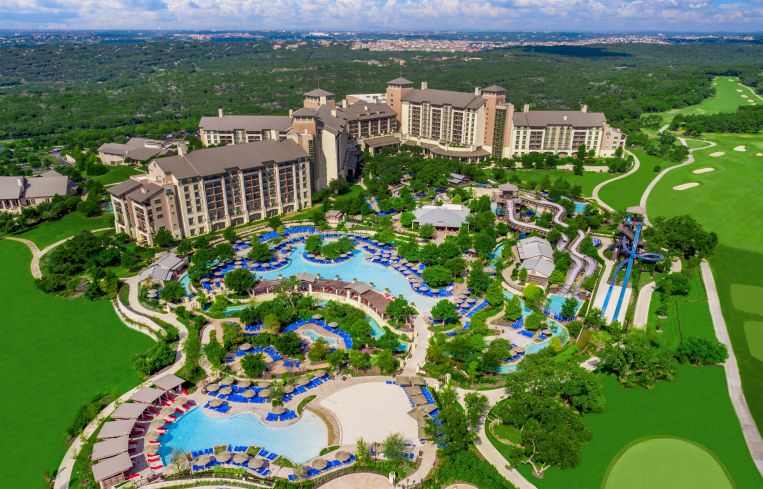Blackstone’s $800M Sale of Texas Resort Continues Hospitality Momentum
By Andrew Coen June 7, 2023 3:45 pm
reprints
Blackstone struck a deal this week to sell a San Antonio hotel property for $800 million, netting a $275 million profit. The transaction highlighted renewed tailwinds in the hospitality sector in its significant recovery from the depths of the COVID-19 pandemic.
Blackstone Real Estate Income Trust’s (BREIT) sale of the the JW Marriott San Antonio Hill Country Resort & Spa to Nashville-based Ryman Hospitality Properties marks the second-largest single-asset hotel deal in the U.S. since the onset of the pandemic in March 2020. It ranked just below the $835 million Brookfield Asset Management fetched for The Diplomat Beach Resort in South Florida from Trinity Investments and Credit Suisse Asset Management early this year.
“The demand and secular trends around the hospitality business are as good as they have ever been,” Scott Trebilco, senior managing director at Blackstone Real Estate, told Commercial Observer. “We are very bullish on the secular demands of people spending money on leisure travel and activities.”
The 1,002-key JW Marriott San Antonio Hill Country, which opened in 2010, includes 268,000 total square feet of indoor, outdoor meeting and event space. The resort features a 26,000-square-foot Lantana Spa, a 9-acre River Bluff water experience and two 18-hole golf courses.
Ryman, a lodging and hospitality real estate investment trust, first pursued the JW Marriot in 2018 when Blackstone acquired it for $598 million, according to sources familiar with the original transaction. Mark Fioravanti, president and CEO of Ryman, said in a statement. “We identified the JW Marriott Hill Country as an ideal acquisition target quite some time ago,” Fioravanti said, adding the company is looking to target “additional value-creation opportunities” at the property.
The total profit includes additional profit from income distributions over the tenure of ownership, according to sources.
While hospitality comprises only around 3 to 4 percent of BREIT’s portfolio today, Trebilco said the JW Marriott underscores how strong of a demand there is for resort properties in warmer climates.
“It reiterates that it really matters what you own and the type of markets you are in,” Trebilco said. “You need to have the right positioning and the right story.”
The San Antonio transaction continues a busy past 18 months for BREIT, which has sold or contracted to sell around $9 billion in properties since January 2022. Eighty percent of BREIT’s portfolio is concentrated in the multifamily, industrial and data center sectors, with 70 percent in Sun Belt markets. In the five years BREIT owned the JW Marriott San Antonio property, it generated a 25 percent jump in cash flows aided largely by increased revenue in event and restaurant space following reinvestments.
“Where you invest matters, and Ryman’s unsolicited outreach demonstrates the strong investor demand for BREIT’s portfolio, which is concentrated in the highest growth sectors and geographies,” Nadeem Meghji, head of Blackstone Real Estate Americas, said in a statement. “This sale, which generates approximately $275 million in profit over a five-year hold period through COVID, represents a terrific outcome for BREIT shareholders.”
Andrew Coen can be reached at acoen@commercialobserver.com



